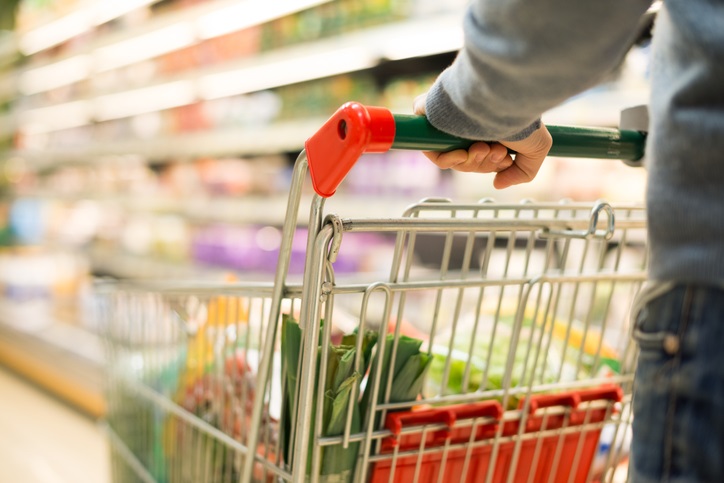Shares round-up: Sainsbury's, Kier, Smith & Nephew, British Land
Latest trading updates are partly to blame for the stock market’s poor start to the new quarter.
1st July 2020 14:25
by Graeme Evans from interactive investor
Latest trading updates are partly to blame for the stock market’s poor start to the new quarter.

Optimism over a V-shaped recovery for Britain's economy wasn't mirrored by leading London shares today as investors digested more worrying signs on the corporate outlook.
The FTSE 100 index started the new quarter more than 1% lower, with this year's heavily-sold trio of ITV (LSE:ITV), Rolls-Royce (LSE:RR.) and International Consolidated Airlines Group (LSE:IAG) among the stocks down 3% or more.
Surging Covid-19 cases in the United States continue to worry investors, although many of today's latest batch of trading updates in the UK were short on confidence-boosting news.
The most telling information came from two of Britain's biggest property landlords after dismal figures from last week's quarter rent day. Hammerson (LSE:HMSO) has managed to collect 16% of UK rent so far, compared with 47% in the previous three months and 99% in the first quarter.
FTSE 100 stock British Land (LSE:BLND), meanwhile, said it had collected 36% of its retail rent for the June quarter, rising to 88% for offices. With 894 of its stores in England now open, representing 64% of the total, it said it expected the collection rates for June to improve over the coming weeks.
Upper Crust owner SSP Group (LSE:SSPG) also highlighted the pressure when it said that it only expected 20% of its units in the UK to be back trading by the autumn, prompting it to cut as many as 5,000 roles.
June sales globally were about 90% below last year, with passenger numbers at UK airports and railway stations where it operates set to be subdued for some time. Shares slid 6% to 242.8p, which compares with 685p in mid-February and 150p at the height of the market sell-off.
SSP CEO Simon Smith remarked that the pace of UK recovery continues to be slow, which is in contrast to the Bank of England chief economist Andy Haldane's more optimistic tone after he said that Britain was rebounding from Covid-19 sooner and faster than expected.
His V-shaped forecast is based on payments, traffic flow and business surveys, although Haldane admits it is still early days and that a steep rise in unemployment posed the biggest threat.
Sainsbury (LSE:SBRY) provided some support for Haldane when the supermarket reported a 10.5% jump in grocery sales and rise of 7.2% in general merchandise, including Argos, for the quarter to 27 June. The performance was better than the chain predicted in April, causing shares to initially rise 2% before the retailer was caught in the wider London market sell-off.
Despite the benefit of stockpiling at the start of the period, rising costs and longer-term trading uncertainties meant the shares of Sainsbury's and rival Tesco (LSE:TSCO) traded marginally lower across the second quarter just ended.
There's been no such caution for followers of B&M European Value Retail (LSE:BME), which disclosed today that UK like-for-like sales surged 27% in the first quarter of its financial year. Shares climbed another 5% to 419.5p, which is close to a record high for the discount retailer.
Topps Tiles (LSE:TPT) also rallied 5% after its performance for the third quarter came in ahead of revised expectations due to the accelerated pace of store re-openings and pent-up customer demand. Its retail website also helped, with online sales across the quarter up 139%.
CEO Rob Parker said the company's market leading position and firm financial footing meant Topps was well placed as the economy begins to recover.
Medical devices business Smith & Nephew (LSE:SN.) was the biggest riser in the FTSE 100 index, even though it forecast a second quarter revenues decline of around 29% on a year earlier. The slump reflected lower levels of elective surgery in the quarter, although investors were encouraged to see an improving trend in June and that the update was no worse than previous guidance. Shares rose 5% to 1,579.5p.
One of the biggest disappointments of the session came from construction and infrastructure services company Kier (LSE:KIE). Its shares fell 10% to 87.75p after it said that Covid-19 would result in further strategic actions being taken over the next 12-18 months.
Prior to the pandemic, Kier said it had made good progress in reducing debt and strengthening its balance sheet, including through £100 million of cost savings in the year to June 2021.
Covid-19 has adversely affected the group's revenues and resulted in it incurring additional costs, some of which are expected to be treated as exceptional. However, Kier said its underlying performance remained resilient as it has continued to deliver critical national infrastructure projects and provide services across a range of sectors.
These articles are provided for information purposes only. Occasionally, an opinion about whether to buy or sell a specific investment may be provided by third parties. The content is not intended to be a personal recommendation to buy or sell any financial instrument or product, or to adopt any investment strategy as it is not provided based on an assessment of your investing knowledge and experience, your financial situation or your investment objectives. The value of your investments, and the income derived from them, may go down as well as up. You may not get back all the money that you invest. The investments referred to in this article may not be suitable for all investors, and if in doubt, an investor should seek advice from a qualified investment adviser.
Full performance can be found on the company or index summary page on the interactive investor website. Simply click on the company's or index name highlighted in the article.